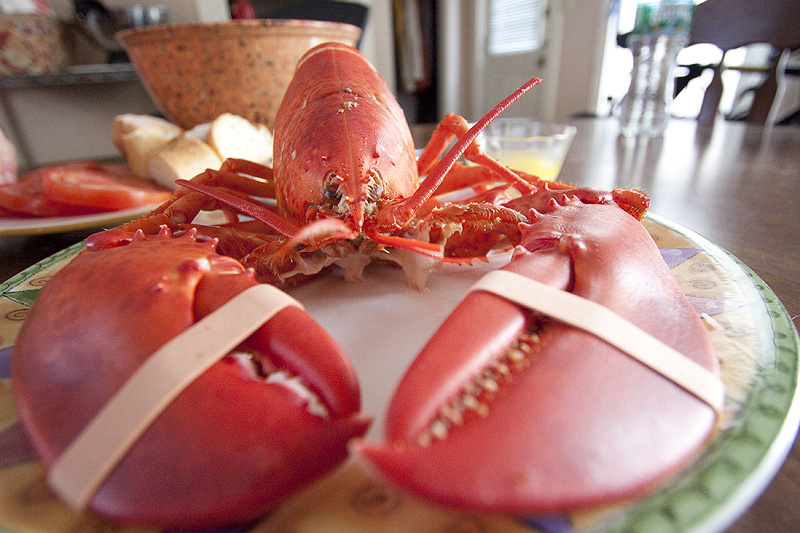It wasn’t the lobster: How we often do work we don’t notice
Work we don’t notice
Do you know that we do work we don’t notice?
During the summer of 1993, I was dining with my wife, Celia, at a Maine shoreline restaurant. I still remember our wooden table with the red and white check plastic tablecloth. I had just consumed an excellent lobster and a pint of beer and felt more relaxed than I had felt for many months.
Leaning back, well-fed, I had no inkling what was about to happen. And then, suddenly, out of my mouth came these words:
“I think I’d like to give up working at Marlboro.”
My professional life was hectic. I had a full-time salaried position at Marlboro College, teaching half-time and running the IT department half-time. I was also freelance consulting half-time. Oh, and the first two half-time positions were, in reality, more like three-quarter-time commitments.
You can do the math.
Until that seafood-fueled moment, I had never consciously thought about making any kind of drastic change in my work life. And yet, as soon as the words were out of my mouth I became aware that I was going to resign from the college and move to full-time consulting work.
And it felt right.
How did I get there?
Well, ultimately, it wasn’t the lobster or the beer that caused this epiphany—they were just the welcome catalysts. I’ve written elsewhere about how you can learn from stories that resonate, but there was no resonance here.
Instead, my relaxing meal provided an opportunity for months of underlying percolating work to emerge. We often do work that we don’t notice. While steeped in the stress and the toll that long workdays were taking on my life, I didn’t notice the analysis and unconscious calculation of risks and tradeoffs that were bubbling under the surface; the hard, drawn-out preparation needed to make such a drastic change in my professional life.
Looking back, I remember a moment in Maine when I moved from employee to self-employed, and I call it an intuitive choice. Perhaps this is what intuition is: a sudden realization of a conclusion from steady unconscious processing of our experiences. Whatever the mechanism, I believe that we have significant unconscious resources that can often help us respond effectively to difficult situations. How we bring them into our consciousness is for you to discover. Perhaps lobster and a beer?
Have you ever experienced this kind of sudden insight in your life? Please share your story!
Image attribution: Flickr user subinev

